Audi Q5 vs Mitsubishi ASX – Differences & prices compared
Compare performance, boot space, consumption and price in one view.
Find out now: which car is the better choice for you – Audi Q5 or Mitsubishi ASX?
The Audi Q5 (SUV) comes with a Diesel MHEV, Petrol MHEV or Plugin Hybrid engine and Automatic transmission. In comparison, the Mitsubishi ASX (SUV) features a Petrol, Petrol MHEV or Full Hybrid engine with Manuel or Automatic transmission.
When it comes to boot capacity, the Audi Q5 offers 520 L, while the Mitsubishi ASX provides 484 L – depending on how much space you need. If you’re looking for more power, decide whether the 367 HP of the Audi Q5 or the 158 HP of the Mitsubishi ASX suits your needs better.
In terms of consumption, the values are 2.50 L per 100 km for the Audi Q5, and 4.40 L for the Mitsubishi ASX.
Price-wise, the Audi Q5 starts at 44800 £, while the Mitsubishi ASX is available from 20600 £. Compare all the details and find out which model fits your lifestyle best!
Audi Q5
The Audi Q5 exudes a perfect blend of luxury and performance, making it a standout in the competitive SUV market. Its elegant design is complemented by a spacious and meticulously crafted interior, providing both comfort and functionality for drivers and passengers alike. With advanced technology and a range of powerful engines, the Q5 effortlessly combines driving pleasure with practicality for everyday use.
details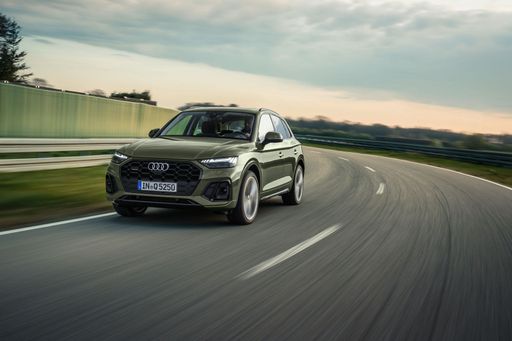 @ audi-mediacenter.com
@ audi-mediacenter.com
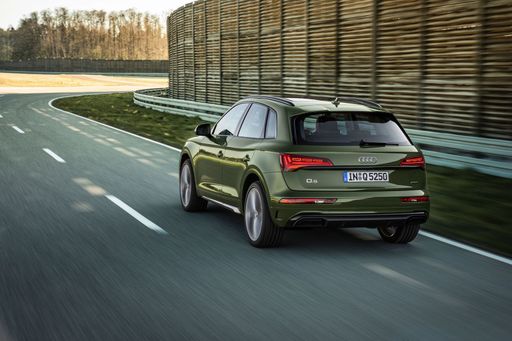 @ audi-mediacenter.com
@ audi-mediacenter.com
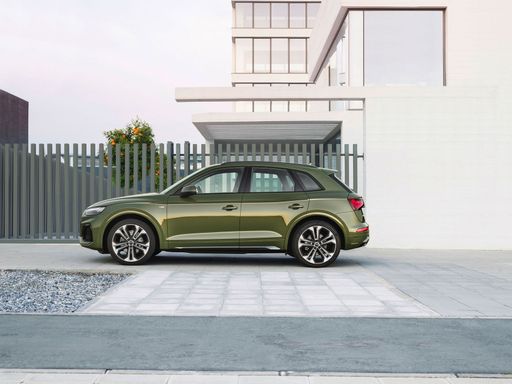 @ audi-mediacenter.com
@ audi-mediacenter.com
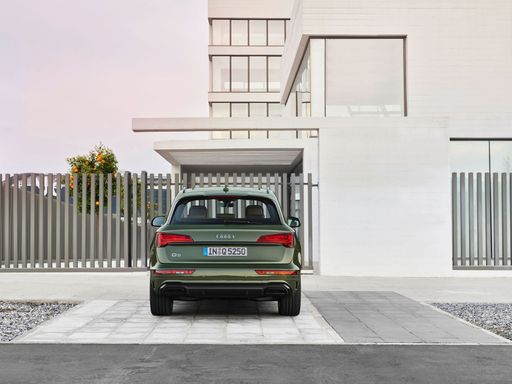 @ audi-mediacenter.com
@ audi-mediacenter.com
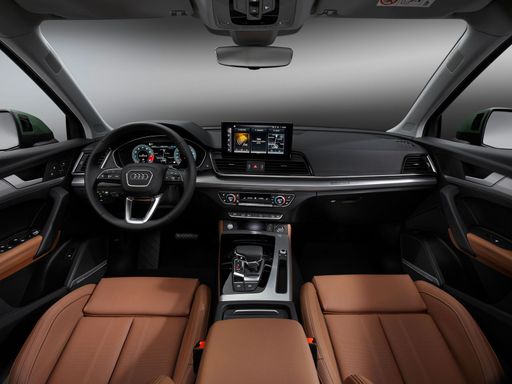 @ audi-mediacenter.com
@ audi-mediacenter.com
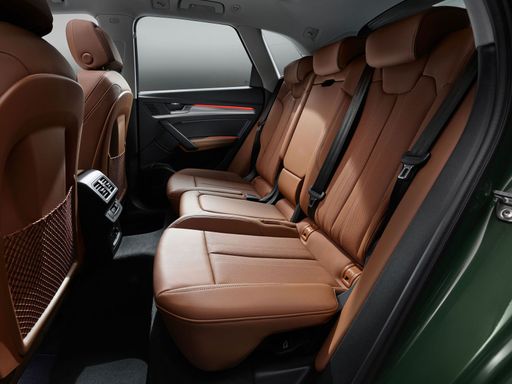 @ audi-mediacenter.com
@ audi-mediacenter.com
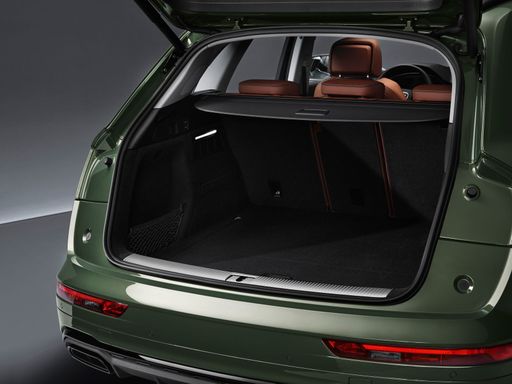 @ audi-mediacenter.com
@ audi-mediacenter.com
Mitsubishi ASX
The Mitsubishi ASX presents itself as a compact crossover that combines practicality with style. Its sleek design and versatile interior make it an appealing choice for both urban and rural settings. With a focus on providing a comfortable driving experience, the ASX also offers a range of modern features that enhance connectivity and safety.
details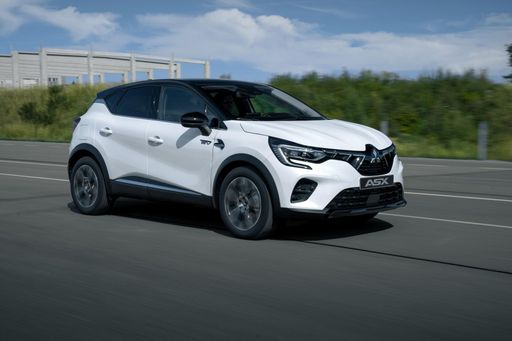 @ Mitsubishi
@ Mitsubishi
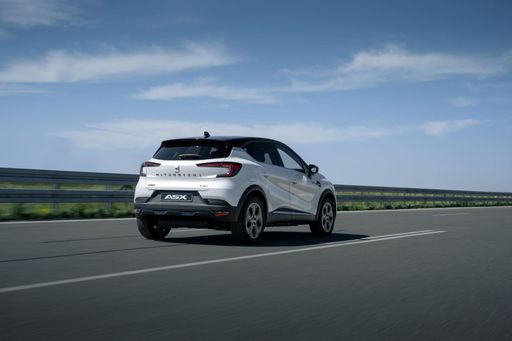 @ Mitsubishi
@ Mitsubishi
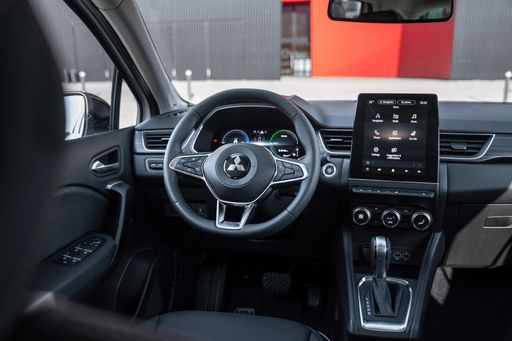 @ Mitsubishi
@ Mitsubishi
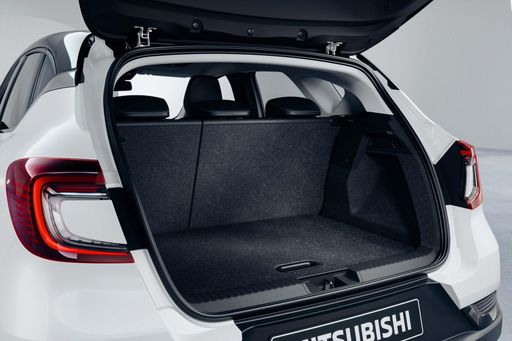 @ Mitsubishi
@ Mitsubishi

|

|
|
|
|
Costs and Consumption |
|
|---|---|
|
Price
44800 - 78900 £
|
Price
20600 - 32500 £
|
|
Consumption L/100km
2.5 - 8.3 L
|
Consumption L/100km
4.4 - 6 L
|
|
Consumption kWh/100km
-
|
Consumption kWh/100km
-
|
|
Electric Range
92 - 100 km
|
Electric Range
-
|
|
Battery Capacity
20.70 kWh
|
Battery Capacity
-
|
|
co2
56 - 189 g/km
|
co2
99 - 135 g/km
|
|
Fuel tank capacity
55 - 65 L
|
Fuel tank capacity
48 L
|
Dimensions and Body |
|
|---|---|
|
Body Type
SUV
|
Body Type
SUV
|
|
Seats
5
|
Seats
5
|
|
Doors
5
|
Doors
5
|
|
Curb weight
1910 - 2245 kg
|
Curb weight
1296 - 1493 kg
|
|
Trunk capacity
433 - 520 L
|
Trunk capacity
348 - 484 L
|
|
Length
4717 mm
|
Length
4239 mm
|
|
Width
1900 mm
|
Width
1797 mm
|
|
Height
1647 - 1656 mm
|
Height
1575 mm
|
|
Payload
490 - 565 kg
|
Payload
397 - 449 kg
|
Engine and Performance |
|
|---|---|
|
Engine Type
Diesel MHEV, Petrol MHEV, Plugin Hybrid
|
Engine Type
Petrol, Petrol MHEV, Full Hybrid
|
|
Transmission
Automatic
|
Transmission
Manuel, Automatic
|
|
Transmission Detail
Dual-Clutch Automatic
|
Transmission Detail
Manual Gearbox, Dual-Clutch Automatic, Automatic Gearbox
|
|
Drive Type
All-Wheel Drive, Front-Wheel Drive
|
Drive Type
Front-Wheel Drive
|
|
Power HP
204 - 367 HP
|
Power HP
91 - 158 HP
|
|
Acceleration 0-100km/h
4.5 - 8.6 s
|
Acceleration 0-100km/h
8.5 - 14 s
|
|
Max Speed
226 - 250 km/h
|
Max Speed
168 - 180 km/h
|
|
Torque
340 - 550 Nm
|
Torque
160 - 270 Nm
|
|
Number of Cylinders
4 - 6
|
Number of Cylinders
3 - 4
|
|
Power kW
150 - 270 kW
|
Power kW
67 - 116 kW
|
|
Engine capacity
1968 - 2995 cm3
|
Engine capacity
999 - 1789 cm3
|
General |
|
|---|---|
|
Model Year
2025
|
Model Year
2024 - 2025
|
|
CO2 Efficiency Class
F, E, G, B
|
CO2 Efficiency Class
D, C
|
|
Brand
Audi
|
Brand
Mitsubishi
|
Audi Q5
The Audi Q5 stands as a prominent figure in the luxury SUV segment, combining elegant design with cutting-edge technology and efficient performance. As of its latest models, the Q5 continues to impress with a multitude of engine options, including mild-hybrid and plug-in hybrid variants, catering to a range of driving preferences and environmental considerations.
Dynamic Performance and Engine Innovation
At the heart of the Q5’s appeal lies its impressive powertrain offerings. The range includes both diesel and petrol engines, featuring advanced mild-hybrid technology, which enhances efficiency and performance. The integration of the mild-hybrid system allows for reduced fuel consumption and lower CO2 emissions without compromising on power. With outputs ranging from 163 to 367 PS, the Q5 offers an exhilarating driving experience, whether purists opt for the robust diesel engines or the spirited petrol variants.
Impressive Fuel Economy
One of the standout features of the Audi Q5 is its remarkable fuel efficiency. With fuel consumption figures as low as 1.5 L/100km for the plug-in hybrid models, the Q5 sets a benchmark in its class. Coupled with a spacious fuel tank that can hold between 54 and 70 litres, drivers can enjoy extended journeys without frequent refueling stops. Even the conventional engines maintain competitive efficiency, making the Q5 an excellent option for eco-conscious consumers.
Advanced Safety and Driver Assistance Technologies
The Q5 is equipped with an array of advanced safety features and driver assistance systems that enhance the driving experience. Technologies such as adaptive cruise control, lane departure warning, and collision avoidance systems provide an additional layer of security for both driver and passengers. Furthermore, the Q5's infotainment system is intuitive and user-friendly, featuring connectivity options that keep you seamlessly connected on the road.
Luxurious Interior and Comfort Features
Step inside the Audi Q5, and you will immediately be captivated by its sophisticated cabin that boasts high-quality materials and attention to detail. The spacious interior comfortably seats five passengers, providing ample head and legroom. The rear seats can be adjusted to enhance cargo space, with boot capacity ranging from 455 to 520 litres, perfect for family outings or road trips. High-end audiovisual systems and customizable ambient lighting contribute to an atmosphere of luxury that Audi is renowned for.
All-Wheel Drive Versatility
Equipped with Audi's legendary quattro all-wheel drive system, the Q5 delivers exceptional grip and handling across various terrains and weather conditions. This capability ensures that drivers can have confidence whether navigating urban environments or venturing off the beaten path. The front-wheel drive variants also offer a commendable driving performance while maintaining efficiency.
Conclusion: The Ultimate Luxury SUV
The Audi Q5 is a masterful combination of luxury, performance, and practicality. With its range of powerful and efficient engines, advanced technology, and a focus on driver and passenger comfort, the Q5 sets itself apart in the crowded SUV market. Whether for commuting, family trips, or weekend getaways, the Q5 is designed to meet diverse needs and preferences with style and sophistication.
Mitsubishi ASX
The Mitsubishi ASX: A Modern SUV with Advanced Features
The Mitsubishi ASX continues to be a popular choice for SUV enthusiasts, combining sleek design, impressive efficiency, and innovative technology. The 2024 model year introduces an array of improvements, making it a worthy contender in its category. In this article, we will delve into the technical details and innovative aspects of the Mitsubishi ASX, presenting why it stands out in the SUV segment.
Sophisticated Powertrains and Efficiency
Under the bonnet, the Mitsubishi ASX offers a variety of powertrain options, catering to different driving preferences. Customers can choose from petrol engines, mild-hybrid systems, and full-hybrid configurations, balancing power and efficiency effectively.
The performance spectrum ranges from 91 PS to 158 PS, demonstrating the vehicle's versatility. With a fuel consumption of between 4.7 and 6 L/100km, the ASX effectively manages fuel efficiency without compromising on performance. The car's CO2 emissions range from 107 to 135 g/km, placing it within CO2 efficiency classes C and D.
Advanced Transmission Options
The ASX offers a mixture of manual and automatic transmissions to meet diverse driving needs. Its gearbox specifications include a standard manual option and automatic options such as dual-clutch transmissions, providing a seamless driving experience. Depending on the variant, the vehicle can accelerate from 0 to 100 km/h in as little as 8.5 seconds, reaching maximum speeds between 168 and 180 km/h.
Modern Design and Spacious Interior
Externally, the ASX reflects contemporary design aesthetics, with dimensions of 4239 mm in length, 1797 mm in width, and 1575 mm in height. Internally, it accommodates up to five passengers comfortably and offers a respectable boot capacity ranging from 348 to 484 litres. Despite its spaciousness, the SUV maintains an optimal weight between 1296 and 1501 kg, which aids in delivering its intended driving dynamics.
Safety and Technology Innovations
Mitsubishi prioritises safety and technology in the ASX. It is equipped with the latest driver-assistance systems, enhancing safety and convenience. The modern infotainment system integrates smoothly with smartphones, ensuring that connectivity is at the driver's fingertips. Moreover, various trimming levels such as "Intro Edition DCT" and "Top Automatik" allow customers to select features best suited to their lifestyle, from basic utilities to luxury enhancements.
Conclusion: A Balanced SUV Choice
The Mitsubishi ASX stands out as a well-rounded SUV choice for those who prioritise efficiency, reliability, and modern technology. Its array of powertrains, stylish design, and advanced safety features make it an attractive option within its price range of €23,990 to €37,390. The ASX's 2024 model reaffirms Mitsubishi’s commitment to offering innovative yet practical vehicles to the global market.
Which drive types are available for the Audi Q5?
Available as All-Wheel Drive or Front-Wheel Drive.
The prices and data displayed are estimates based on German list prices and may vary by country. This information is not legally binding.
